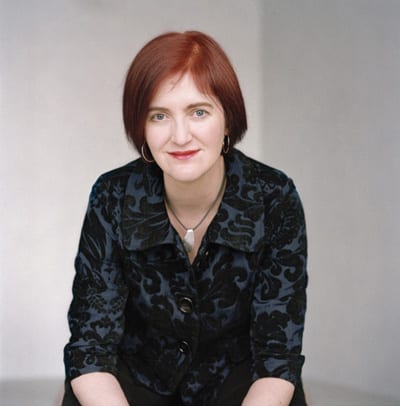The stories in gay author Emma Donoghue’s ‘Astray’ stir the imagination

IRISH LASS | Lambda Literary Award recipient Emma Donog-hue imagines backstories with great aplomb in ‘Astray.’
Astray by Emma Donoghue (2012) Little, Brown. $26, 275 pp.
The lady in the picture was wearing the biggest scowl you’d ever seen. The photo was taken long ago and it made you wonder: What happened that day to make her so snarly? Was there a death, lost crops, an accident, bad weather … or did the photographer make her angry?
You’ll probably never find the answer, but just like that portrait stirs your imagination, so does Emma Donoghue’s collection of short stories, Astray, make imagination become possibility.
As you’ll see in “The Widow’s Cruse,” the scowling woman could’ve been on her way to meet her lawyer.
Newly widowed by a smallpox plague, she was frightened and unsure. She feared destitution. Her lawyer should have feared her. Then again, that woman you just can’t quite figure out you’ll see in “Daddy’s Girl” — she’s not really a woman, down deep.
Astray is written with a great premise: take an old newspaper article, story, fictional tale, or even a passing mention from any source, and imagine how that single episode in someone’s life might have actually happened.
It sounds like a seventh-grade writing assignment, but in Donoghue’s hands, it works to a level of impressiveness.
Moving through the centuries, Donoghue turns everyday situations and period-piece slice-of-life situations into something for which O. Henry would be proud. Indeed, some of these tales start with a little sleight of word, poking our emotions in one way, then slowly twisting them into another direction before giving us the real story. You never know where these tales will end, and that’s a good thing.
My only complaint about this book is that it didn’t last long enough. I wanted more, and if that’s the kind of book you have to have, then Astray is one to picture yourself reading.
— Terri Schlichenmeyer

